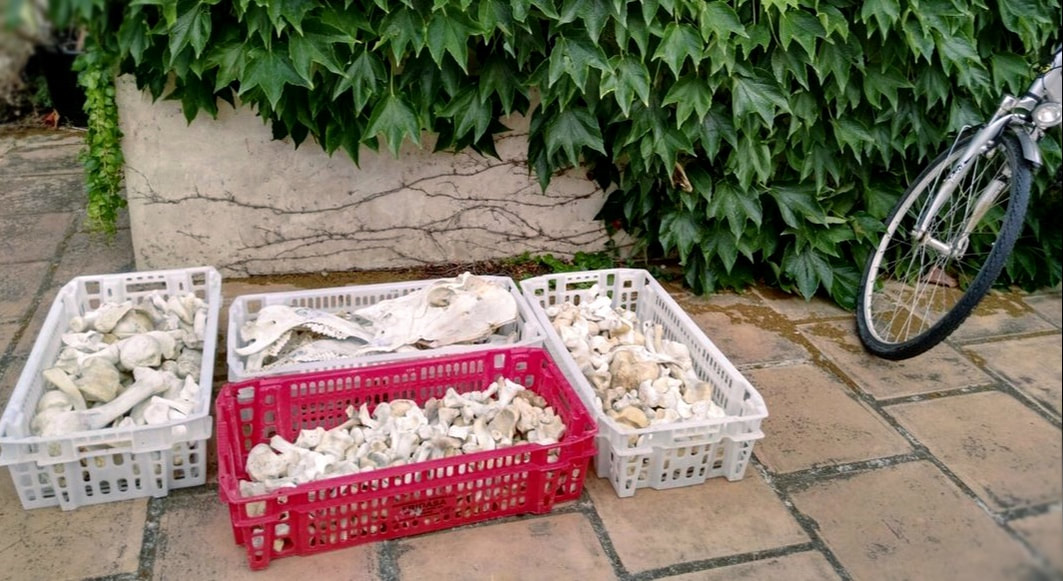DIGGING FOR WORDS
|
|
Jose: I see on your website you describe your work as a type of displacement, linguistic displacement maybe…
T: Lately we are very concerned with how people see reality. What is reality? Theatre is supposedly a fiction, but it’s very real – we’re there with people, it’s more real than TV, this ritual thing. We’ve been practicing a lot and we think that to see something real, you have to unsee something. You need to block some things to let the audience see something. Invite them to take off their normal glasses and put them on a different way. Finding tools that allow us to let the audience come with us and see things in a new way.
Some people say we’re very political. I think in the dramaturgy somewhere… we’re really undermining the normal way of looking at things. And we make the audience work, come with us. Sometimes you get too far and people don’t go with you. We change the form a lot from once piece to another – each process needs different people, different tools and a different approach.
J: We are always as artists trying to make something that is going to change the world or wake people up… some sort of movement, a change always. And it seems, it’s not the product that is actually getting to other places and creating changes, maybe it’s the process that is the most interesting. What do you think makes a process valuable in this sense?
T: I think there has to be a very precise question that’s being looked at in a process. To make it useful for a lot of people. In our case, the problem is how we as humans dialogue. It’s good because it has limits in its focus. Society accepts that science takes a lot of time, whereas society doesn’t accept that our work as artists takes a lot of time too. They want results now.
J: Yeah, because science is actually a process – whereas art is now in a product-based economy.
T: Lately we are very concerned with how people see reality. What is reality? Theatre is supposedly a fiction, but it’s very real – we’re there with people, it’s more real than TV, this ritual thing. We’ve been practicing a lot and we think that to see something real, you have to unsee something. You need to block some things to let the audience see something. Invite them to take off their normal glasses and put them on a different way. Finding tools that allow us to let the audience come with us and see things in a new way.
Some people say we’re very political. I think in the dramaturgy somewhere… we’re really undermining the normal way of looking at things. And we make the audience work, come with us. Sometimes you get too far and people don’t go with you. We change the form a lot from once piece to another – each process needs different people, different tools and a different approach.
J: We are always as artists trying to make something that is going to change the world or wake people up… some sort of movement, a change always. And it seems, it’s not the product that is actually getting to other places and creating changes, maybe it’s the process that is the most interesting. What do you think makes a process valuable in this sense?
T: I think there has to be a very precise question that’s being looked at in a process. To make it useful for a lot of people. In our case, the problem is how we as humans dialogue. It’s good because it has limits in its focus. Society accepts that science takes a lot of time, whereas society doesn’t accept that our work as artists takes a lot of time too. They want results now.
J: Yeah, because science is actually a process – whereas art is now in a product-based economy.
More on Societat Doctor Alonso here.
